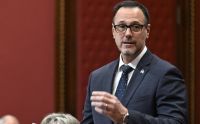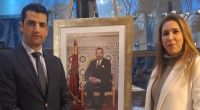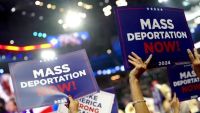1. Who is a Muslim?
Is being a Muslim within the Western context (exclusively) a form of religious affiliation or (also, or even mainly) an ethnical concept comparable to that of the concept "Jew" as it functioned in the West for instance though the 19th and early 20th centuries?
The definition of the concept "Muslim" in the Western context is full of ambiguities and this issue has many important social and political implications.
Registration, Statistics
In addition to the prevailing separation of Religion and State (which implies that the religious convictions of citizens are not officially registered and that their religious conviction is a strictly personal matter), we are facing an absence of any formal registration of persons as "members" of Muslim religious organizations (unlike, for instance, churches keeping exact records). This results, among others, in wild statistics of Muslims in the Netherlands and everywhere else in the West, usually based on extrapolations of geographical or ethnic origin, etcetera. E.g: for Dutch society and statistics, Moroccans are usually identified as Muslims, completely regardless of their (various degrees of) personal commitment. It is quite clear that there is a wide gulf between the way the (non-Muslim) majority of society defines this concept on the one hand (external definition), and the way this is done within the circles of Muslim groups themselves, on the other hand (internal definition). Example: if we agree that there are now ca. 40.000 Iraqi's in Holland, Dutch society at large would consider them as 40.000 Muslims. From the internal point of view, however, it is quite clear that, apart from the presence of other religions than Islam among the Iraqi's concerned (Christians, Sabians, Yazidi's, etc.), many of them would not want to identify with Islam as a personal affiliation or commitment, but nevertheless continue to be identified as such by society at large. Another example: Recently, a Dutch newspaper Metro announced that "Islam is now the first religion in the capital [of the Netherlands] Amsterdam". According to a statistic quoted Muslims are now 13%, Catholics 10%, Protestants 5%, and the other religions together 12%. Jews are no more than 1%. Here, Muslims are taken as one group, but Christians are divided over Catholics and Protestants (ignoring large groups of non-registered extra-church "Christians). Moreover, it can be assumed that figures for Catholics and Protestants are based on official data of Churches, while numbers of Muslims are, as usual, based on extrapolations. The result is a false image prone to serve all kinds of demagogic purposes.
Ignorance of Internal Variety
In addition, the great variety of intra-Islamic trends, of personal commitment and actual religious practice to be observed within these groups remains largely unobserved. Right-wing parties in various European states with a (sometimes hidden) racist agenda, largely exploit the prevailing ignorance about the internal diversity and add to the massive identification of all "foreigners" of a Muslim background as (active or even extremist) Muslims. The contradiction here is that secular societies claiming that citizens should be equal regardless of their religious (or non-religious) background at the same time block these groups of citizens from access to this equality by continuing to identify them massively as "Muslims". (A relevant historical parallel is the massive identification of groups of Jewish origin, including large secularized groups of people without (hardly) any religious affiliation or commitment, as "Jews" on the basis of their [supposed] origins only, during the 19th and pre-war period of the 20th century, prior to the outburst of Antisemitism in Germany and elsewhere.) I consider this massive identification of foreigners as "Muslims" as a source of many exaggerations of the influence of "Islam" in these societies and as a potentially very dangerous development: It helps to identify "Muslims" increasingly as a fifth column within Western societies threatening the survival of social peace, democracy, etcetera. How to analyze and criticize all this, both from the perspective of Islamic sources and history and from the sociology of religion, human rights (public law), etcetera? One of the issues to be dealt with here would include the Islamic custom that children born from Muslim parents are automatically regarded as Muslims as well which is connected, of course, also to the social and legal impact of religious identity in the Muslim world. Theoretically at least, this is different in the Western world.
Research of Social Scientists
In line with all this, it is also worth mentioning that some researches show that children from Muslim families in the West for a much greater percentage answer that they are Muslims than children from Christian families answer to be Christians. They also tend to adhere to a higher degree than their Christian counterparts to articles of faith etcetera. There are even respectable researchers claiming that secularization cannot be expected to take place among the younger generations of Muslims in the same way as this has taken place and is continuing to take place in younger Christian and other generations. This can, of course, hardly be accepted and there is something wrong here with the questions formulated by the social scientists concerned, I would presume. But what?
"Re-Islamization" under the Pressure of Society
Another side of this issue are the consequences of this massive identification of foreign groups as "Muslims" (always in a negative sense) for the persons who are thus identified, especially for the younger generations. It is hardly possible for a youngster from non-Dutch, Islamic origin, to escape the question what Islam means for his or her identity, even if she/he is growing up within a family of very loose religious affiliations. It is society at large which forces him/her to integrate, in one way or another his/her being a "Muslim" into his/her own understanding of personal identity. One can even state that if we observe processes of "re-Islamization" among younger generations, then this is due, to a certain extent at least, to the pressure of the surrounding society, forcing youngsters to identify as "Muslims" (apart from other influences that may stimulate these processes).
2. The imam
What is an imam? What are his tasks and functions? Can he be compared with a rabbi, priest or minister of religion? What is the position of an imam according to Islamic doctrine? What is the actual position of an imam in the Muslim world? How is an imam educated in the Muslim world? Is there a difference in the position of an imam working in a minority position? Does a non-Muslim society like the Netherlands have the right to demand or even impose a certain education of the imam? Who is responsible in a country like Holland for the education of the imam? Is the imam or should the imam be independent from the authority of governments of Muslim countries, like, for instance, Morocco?
The historical dimension: Dutch experiences with the imam during the colonial period
The Dutch Constitution, including the separation of State and Religion, was devised for the territory of the Kingdom of the Netherlands and was not applied in the former colonies, like the Dutch East-Indies (present Indonesia). The Dutch East-Indian government developed the office of the Advisor for Indigenous and Islamic Affairs in order to control those aspects of the Islamic religion which were considered to be of political importance. The dominant views of the imam in the colonial period are contradictory: the popular view among others ascribed to him the dangerous qualities of an ignorant and fanatic priest; orientalists like Snouck Hurgronje systematically denied that he could be compared with a Christian clergyman, not only because of his low education but also because he lacked the religious capacities of a real priest who can administer sacraments to the faithful. In Islam everybody who possesses a minimum of knowledge, can become imam. There was thus no official recognition of a Muslim clergy, simply because such a clergy was conceived not to exist.
Contemporary Dutch jurisprudence concerning the imam
Various labor disputes between Muslim communities and imams have provoked verdicts of Dutch courts over the last twenty years. One of the main issues was whether or not the imam should be treated in the same way as Christian, Jewish or even Hindu clergymen. In keeping with the principle of the separation of State and Religion, the Dutch labor law stipulates that the State has no right to interfere in the labor disputes that may arise between a religious community and its "clergyman", as this is per definition a dispute of a religious nature and thus concerns an area where the State has no access. Some churches, especially protestant churches, have therefore organized an internal system of jurisdiction which is competent to judge local conflicts of the type quoted at a higher level, and church communities attached to these churches must obey the verdicts of these higher "courts". In the case of the imams, the highest Court of Holland has stipulated that they are, from a legal point of view, indeed "clergymen", thereby breaking with the earlier policies towards the imams during the colonial period (see the previous point). The verdict of the Dutch High Court has many important implications, e.g. for the appointment of Muslim "clergymen" in prisons, certain types of hospitals, etcetera. It also has implications for many aspects of the social and juridical position of the imams.
Dutch political discussions concerning the imams and their education
In order to understand the series of political discussions on the imams that took place in Holland over the last fifteen years, one should be aware of the specific systems existing here for the education of Christian clergymen. The Dutch paradox teaches that there is, on the one hand, a separation of Religion and State. On the other hand, it recognizes that religion can play a constructive role in society. The Dutch State is therefore willing to pay the full education of whatever type of clergymen and of whatever religion or confession, as long as certain conditions are obeyed. (We shall touch some of these conditions more specifically in the chapter on religious organization). In reality, at present, there are different systems through which the State finances these various forms of education. The most important varieties to be observed in Holland are two:
(1) The State Faculty of Theology, with teachers in religious sciences appointed exclusively by the State (like in Leiden), to which teachers by various Churches may be attached in separation (!). Students study sciences in the State Faculty and are trained in the doctrine of their future church employers by the Church Faculty. This system is called "Duplex Ordo" ("double order"): it is the application of the constitutional principle of the separation of religion and state at the microcosmic level of two separate, but co-existing faculties: the one subjected to the State, the other to the Church(es).
(2) The Confessional Faculty of Theology fully subjected to the authority of a religious organization, usually a Church. Here we have the "Simplex Ordo": the simple order. The student is trained in religious sciences and normative, doctrinal disciplines in one un-separated system, which is fully autonomous from the State, although the State is paying it 100%. Examples: Nijmegen and Tilburg (Catholic), Amsterdam (Free University), Kampen (both of them Protestant).
Politicians have argued that it is possible for Muslims to have their imams educated in Holland in accordance with one of these two varieties, without interfering in the specifically doctrinal matters of Islam, in other words: in keeping with the constitutional separation between Religion and State. They have claimed, for instance, that a separate Mosque Faculty could also be attached, in one form or another, to an existing State Faculty of Theology, for instance in Leiden, Amsterdam, Utrecht or elsewhere. Muslim groups wanting to break away from the influence of foreign governments have been persuaded to take all kinds of initiatives , all of which have remained without result so far. The two existing "Islamic Universities" (in Rotterdam and Schiedam) can be seen as attempts to realize the second model in order to gain state financing for the training of imams. The tragedy of all these attempts remains, however, that they seem to have little chance to be successful. The government likely will honor only requests in this field from a religious body that can guarantee that students trained in the faculty to-be will really be appointed as imams in the mosques attached to that body. There exists no such body of mosques with such authority in the Netherlandsd and the groups ad hoc who are involved in these initiatives are usually loosely organized groups of individuals. In the second place, in these initiatives again (see also point 1, above) the inner-Islamic diversity is ignored by them, totally. Nevertheless, Dutch politicians, including cabinet ministers continue to plead for a Dutch training program for imams, and occasionally are supported in these ideas by prominent Muslim spokesmen, e.g. by Arkoun, who also sometimes pleaded for a prohibition of the influx of new imams from Muslim countries (like several right-wing politicians have been doing, also. One of them was Bolkestein, who occasionally also pleaded for prayers to be said buy the imams in the mosques for the Dutch queen).
Publications and research concerning the imams in the Netherlands
The confusion about the tasks and functions of the imams is enhanced by different kinds of publications. In a Turkish Diyanet inspired brochure (in the Dutch language), for instance, the great differences between the imam and his Christian colleagues is underlined. The imam is said to play no role in "pastoral counceling" of the faithful of his community, like a Christian priest or minister is doing, for instance. This brochure is in line with the Turkish government position concerning the imams. In a widely-read newspaper-article published during the nation-wide discussion of the controversial views of a Moroccan imam concerning homosexuality, it was underlined that the influence of the imams on the Muslim faithful is highly overestimated. The author thought that in Holland discussions in such matters should take place with "Muslim intellectuals", not with imams.
Since 11 September 2001 certain imams are closely followed by media, and occasionally controversial utterances in sermons, taped by Muslim visitors of mosques for the media, are discussed in TV-programs and become the subject of political discussions and even of measures by the national government as well as local governments. Sermons of an imam in Tilburg, for instance, are now translated into Dutch on a weekly basis, so that everyone may know what has really been said in the Friday-khutba. Serious, detached studies and discussions of the imams and their work do exist but hardly play any role in the public debates on the imams. A long study of the three printed volumes of the khutba's of Khalil El Moumni (imam in Rotterdam) by myself, for instance, hardly played any role in the recent debates on this imam, not even when he was summoned to the court in view of his utterances concerning homosexuality and homosexuals. The Dutch translation of the fatwa's this imam wrote in Holland hardly could draw the attention of any press media.
3. How do Muslims organize and which authority do they recognize?
How can the Dutch society in the widest sense of the word (government institutions, religious organizations, schools, hospitals, etcetera) come into contact with the Muslims? Who can represent the Muslims at various levels and for various occasions. Is there a body that can speak with any authority on behalf of Muslims? What is the role here of foreign governments?
The Church is the main religious organizational pattern known to Dutch society.
For many different historical reasons, Christian churches are (with exceptions) well-organized. A characteristic element of the Church, and an intrinsic element of its Christian identity is that is thought and believed to be the body that formulates, protects and preaches the Christian doctrine. Churches are based on a confession or creed, i.e. on a set of theological positions concerning the religious truths that are thought to be the (exclusively valid) expression of the true faith. Thus, churches can be distinguished from each other on the basis of their respective confessions. Internal laws or rules of the churches have usually defined the institutions, functionaries or functionaries cum institutions who are competent in defining and redefining the confessional basis of their organization. These are, for instance, the synods in the Protestant Churches, and the higher clergy in the Catholic Church, etcetera. In addition to this, there usually is registered (and paying) membership recognizing the religious competence and authority of the functionaries concerned and accepting that they represent the church in its dealings with society at large, including the government.
These aforementioned elements are essential facts taken into account by the State in its dealings with the churches. Because the constitutional separation between Religion and State does not prohibit certain forms of cooperation between them under certain conditions. On the contrary, there in fact many fields where the two do cooperate: education, spiritual care for citizens deprived of their freedom, etcetera. The essential pre-condition of this cooperation is that it takes place between competent representatives of both parties. The State cannot ignore the complete autonomy of the church in defining its own official structure and competences, and the same holds true for the church vis-à-vis the State.
The need of legitimate representatives
In the Netherlands (and in all countries of the European Union) the State is looking for the body or bodies who can represent the Muslims in matters recognized by the State to fall under its (co-)responsibility. So far, no European State has solved this problem in a satisfactory manner. Also in Holland, we observe various attempts to create Muslim Councils at a national level. There are problems that remain unsolved. One of the main issues is the division of Muslim religious organizations, to be observed all over Europe, between groups accepting, in one way or another, the authority of foreign governments on the one hand, and groups that reject these various forms of political interference. This division is, in a certain sense, to be seen as a reflection of the similar division existing within the Muslim world itself, viz. between the Islamic institutions functioning under the authority of the State ("official or State Islam") and those groups that operate more or less independently or even in opposition ("parallel Islam"). In view of the prevailing system of Religious Freedom, Muslim groups belonging to the second category have been able to develop many institutions and organizations in Europe, adding to the public diversity of Islam. The activities of these groups (roughly to be estimated at least 50% of all Muslim religious organizations in Europe) are usually fiercely opposed and combatted by foreign governments who fear their influence casting back into their home countries. Nevertheless, the main institutional innovations to be observed in Europe and Holland are certainly due to these groups, not to the foreign government groups. All Muslim primary and secondary schools in Holland, for instance, are their work. The NMO (Dutch Muslim Broadcasting Company) has been successfully managed by them over the last years, etcetera, etcetera. The NIO (Netherlands Islamic Broadcasting Organization) is managed by groups that are considered as loyal to the governments of their countries of origin.
Religious organizations of Muslims in a secular society characterized by the separation of State and Religion.
It would be quintessential to have a deep discussion and analysis of (1) the way(s) Muslims have organized themselves on a religious basis in the past, both within and outside the Muslim world: is the (stereotypical) view of Islam as necessarily interwoven with the State really true on historical grounds or is there, also in Islam, a possible separation? (2) of the ways how Muslims could further develop their institutions within a situation of separation, so as to fit within such a system? Major problem here is, I believe, the interference of State authorities of Muslim countries. Is it possible, for instance, for a European government to refuse to have any dealings with Muslim religious organizations who are under the direct or indirect authority of the Turkish or Moroccan government? In other words: can European governments confine their official contacts to Muslim religious organizations who are independent of foreign State authorities? I personally am inclined to believe that this really would be the direction in which the future solution has to be looked for. My main reason for this conviction would be that these organizations do not respect the basic rules of the separation system which require internal autonomy. If you deal, for example, with the Diyanet federation in Holland (more than 100 mosques), you are in fact dealing with the Turkish government. This implies that, on a state level, everything Islamic acquires the aspect of foreign policies which is an infringement upon Dutch (European) sovereignty and also upon the actual rights of many of the Muslims concerned who are in fact Dutch citizens. Thus, the solution I am gradually of the problem I am gradually inclined to accept would be: the political independence and autonomy of the organizations who want to sit at the table with public authorities and institutions in Holland (and elsewhere in Europe) as a conditio sine qua non. In Holland, this would mean that the government would refuse in the future to have any dealings with the CMO (Contactorgaan Moslims en Overheid, an Islamic Council of the Netherlands, sensible to the instructions of foreign governments like Turkey and Morocco) and confine its contacts to the CGI (Contact Groep Islam, another Islamic Council at national level, comprising groups and organizations who are against any form of interference of foreign governments. It would, however, be far from easy to convince any government institution to follow this way, as the NMR, with its independent groups, is mostly stigmatized as "fundamentalistic", especially by the government circles behind the CMO.
What is be understood by the political autonomy of Muslim religious organizations?
Here the answer would be in a general sense: the absence of the means of power enabling foreign governments to interfere in the decisions of the organizations concerned, e.g: the rejection of any form of property rights of foreign government institutions on the premises of mosques and related buildings and grounds; the rejection of imams appointed and paid by foreign government institutions; the prohibition of the acceptance of any financial or other subsidies by foreign governments or their institutions. Here, it would be important to discuss more precisely which kinds of institutions would be comprised in this category. Is, for instance, the Rabitat al-'Alam al-Islami which, through its various institutions is vary active among Muslim groups in Europe and elsewhere, to be categorized as such? There are serious arguments, I would believe, to answer this question in the affirmative sense, as the leading bodies of the Rabita are directly appointed, if I am not mistaken, by member-states of the Islamic Conference Organization which is an international body of States and Governments. We could ask the same question about the Moroccan "European Scientific Council" with its branches in various countries of Europe, including the Netherlands. Would this not be a draconic impairment upon the rights of Muslims in the West, depriving them of a lot of means to live their religion in their daily life, obliging them to buy their autonomy with their own money?
The problem of religious authority as distinct from political authority
Religious freedom implies full liberty of making choices in religious matters as long as there is no infringement upon the laws of the State. In the discussion about Muslim religious organizations, a sharp distinction should therefore be made between political authority on the one hand, and religious authority on the other hand. The separation system may require political autonomy vis-à-vis foreign states, but never implies any restriction or prohibition of freely choosing or accepting any religious authority in the genuine sense, whether or not his authority is living in the territory of the State or abroad. Catholics, for instance, have the full liberty to abide by the religious authority of the Pope, and Muslims, similarly, may collect and follow the views of muftis and scholars and their learned institutions wherever they live. This is a point that deserves to be investigated more profoundly.





